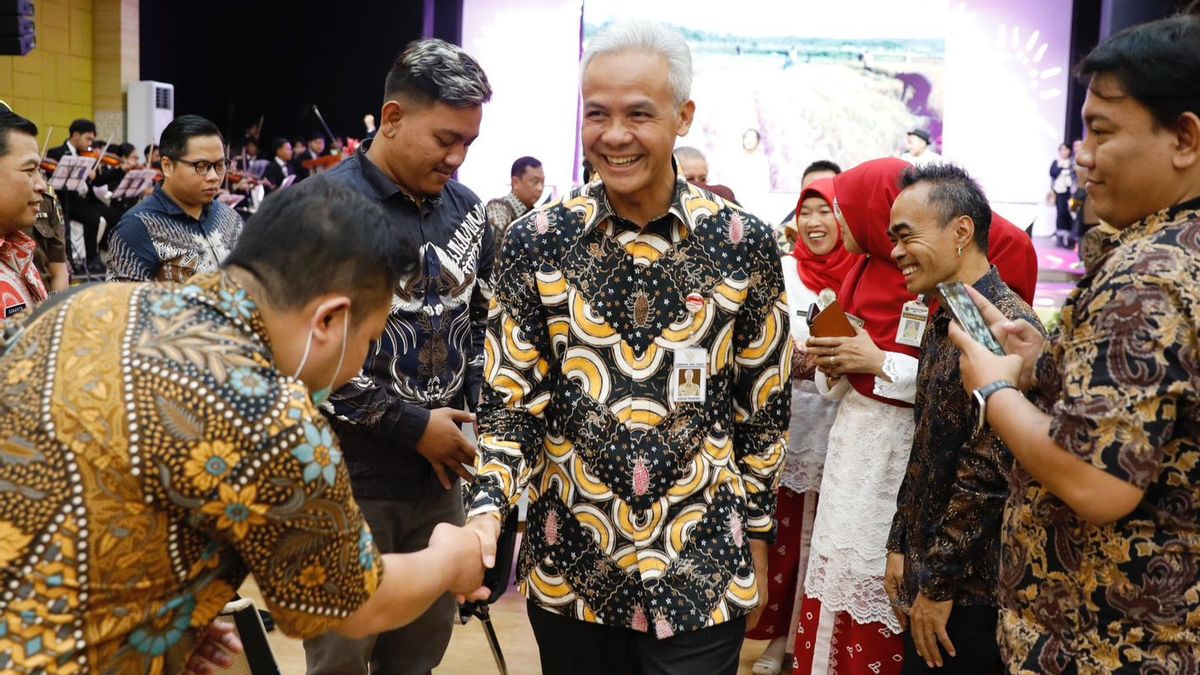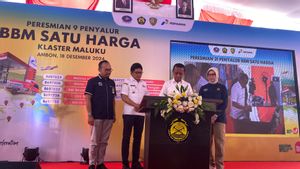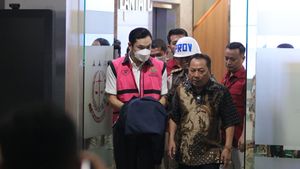SURAKARTA - Providing access to good education to children from underprivileged families is the way for Central Java Governor Ganjar Pranowo to eradicate and reduce poverty in Central Java. The simple idea emerged when many poor families were found to be highly educated.
"I found that the family did not go to school. Even accessing schools couldn't. Actually, the idea was for children who, sorry, could not afford to access the family. That's as simple as that," said Ganjar when inaugurating the revitalization of seven Vocational Schools at SMKN 8 Surakarta, Wednesday, February 1.
Since then, Ganjar Pranowo has started a free school for poor and poor families in order to access education. Precisely in 2014, Central Java Vocational School was opened specifically for children from underprivileged families.
At school with the boarding school system, students don't have to spend a penny. All tuition fees are free, including uniforms, meals, and shelters. The condition is only one so that it can be accepted at SMK Central Java, which is to come from poor families.
"This is only for those with poor families. The state finances for three years of education (until graduation). We finance the financing with the Provincial APBD. But the distribution is less then we encourage it," he explained.
So far, there have been three Central Java Vocational Schools, namely Central Java Vocational Schools in Semarang City, Central Java Vocational Schools in Pati Regency, and Central Java Vocational Schools in Purbalingga. The three schools use a boarding school system. The model will be replicated in existing schools or SMKs, but modified with a semi-boarding school system.
"Today we have expanded with 15 semi-boarding schools. Plus three boarding schools, there are already 18 special schools for poor children. We have also prepared 17 more schools," said Ganjar in his remarks.
Ganjar revealed, from three Central Java Vocational Schools, there have been many good examples. His graduates have proven to be able to work in well-known companies, even working abroad with salaries above average. They are also able to become the backbone and raise the status of the family.
"Alhamdulillah, it's good. That's why if we want to reduce the poverty rate if we send one child's family to school well, then they will be able to help their family," said the governor for the two periods.
Seeing this practice giving good results, Ganjar tried to boost by cooperating with the company to work together to create industrial coaching. If so far what has been done at SMK Central Java is still using APBD funds, then for development in other schools it can be done through cooperation with the private sector.
"Later on, we will ask for the help of lacking equipment, then connections with industry, including their internships, they practice up to what curriculum is needed. That's the progress we will develop later," he explained.
In fact, in several coordination meetings for handling extreme poverty in various regions, Ganjar emphasized that in order to find school-age children who cannot access education. The more children from poor families are given education, the poverty alleviation will run well.
"If we can find more than poor families, we can go to this vocational school, I think the poverty alleviation will be much more solvable, faster and longer," concluded Ganjar Pranowo.
The English, Chinese, Japanese, Arabic, and French versions are automatically generated by the AI. So there may still be inaccuracies in translating, please always see Indonesian as our main language. (system supported by DigitalSiber.id)













